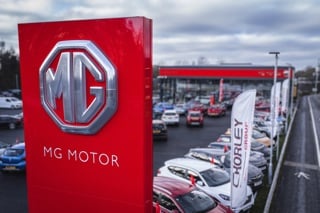It is now Germany that seems more like a throwback to the 1970s – workers at Opel’s Bochum plant recently rejected a GM plan to turn it into a parts warehouse when car production ceases, so now everyone will lose their jobs. Mind you, Britain has to be a better place to make cars. The factory owners are all based overseas and, Jaguar Land Rover excepted, production can be moved. Ellesmere Port exists only because it can prove it is more efficient than any other Western European GM plant. Politically, GM would rather have closed Ellesmere Port to save the jobs of prickly Germans.
However, it is not all sweetness and light. The big problem for British factories is so many of the components have to come from Europe. Britain lost much of its components sector in the 1980s and it has been slow to recover. When it was saved in 2011, Ellesmere Port had a target of reaching 30% local content – at the time only 10% of components fitted to a UK-assembled Astra came from the UK. Privately, UK car bosses are sometimes close to chewing the carpet in frustration at the shallowness of the UK components sector.
The European cloud on the horizon
Finally, one cannot ignore the political environment in which the industry operates. Car manufacturing is a high-profile activity and all governments take a close interest (sometimes, like the government in the 1970s, far too close an interest).
 |
|
It may be unfashionable to say so, but the current UK government deserves pretty high marks for its approach – people within GM say Industry Secretary Vince Cable’s trip to Detroit played a significant part in Ellesmere Port’s survival. The Government’s automotive strategy runs for seven years, deliberately longer than one electoral cycle, to keep party politics to a minimum – it is hard to imagine any future Labour government tearing up the policy when it is half-way through.
However, there is one big political cloud on the horizon. Every car industry boss agrees that, if Britain votes to leave the EU, the prospects for the UK car industry darken. Basing a car factory for the EU outside the EU is not impossible, but it makes arguing for future investment in UK factories much harder.
Whether Britain leaves the EU depends on wider issues than car factories, but it is a safe bet that, if the UK car industry were a single constituency, it would be voting solidly to stay in.

















Login to comment
Comments
No comments have been made yet.